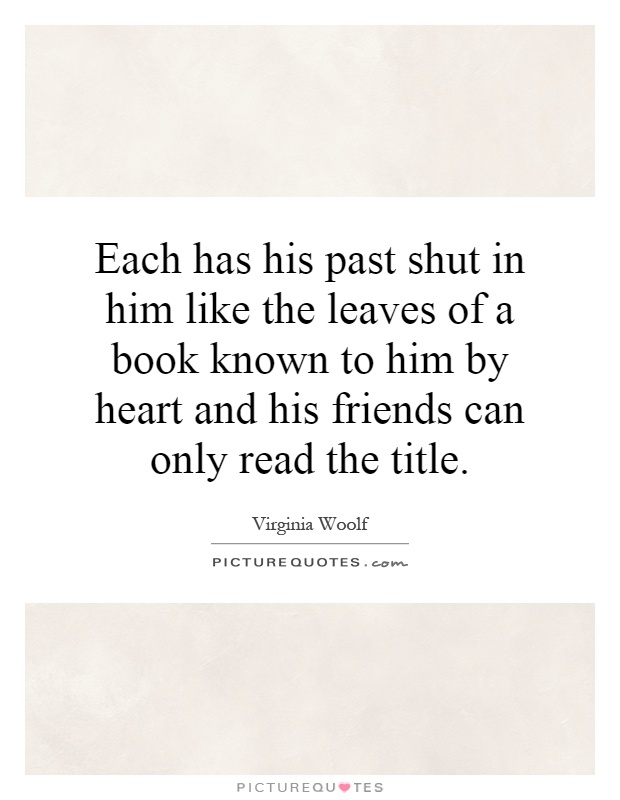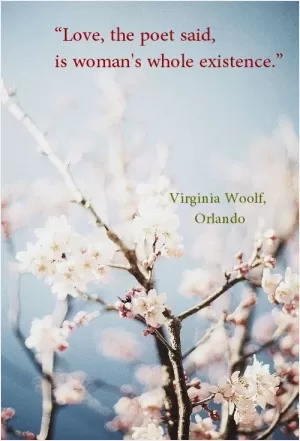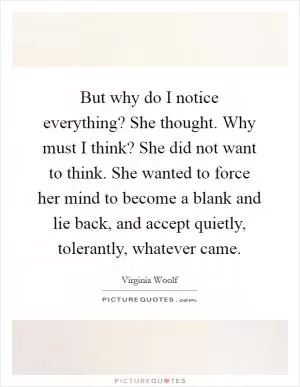Each has his past shut in him like the leaves of a book known to him by heart and his friends can only read the title

Each has his past shut in him like the leaves of a book known to him by heart and his friends can only read the title
Virginia Woolf, a pioneering writer of the early 20th century, was known for her innovative and experimental writing style. She often delved into the complexities of human consciousness and the inner workings of the mind. In her works, Woolf frequently explored the theme of memory and the past, examining how our personal histories shape our present selves.The quote, "Each has his past shut in him like the leaves of a book known to him by heart and his friends can only read the title," encapsulates Woolf's fascination with the intricacies of memory and the ways in which our past experiences inform our identities. Woolf believed that each individual carries within them a rich tapestry of memories, emotions, and experiences that shape who they are. These memories are deeply personal and intimate, known only to the individual themselves.
Woolf's writing often delves into the inner thoughts and memories of her characters, revealing the complex layers of their pasts and the ways in which these memories influence their present actions and relationships. In works such as "To the Lighthouse" and "Mrs. Dalloway," Woolf explores the ways in which memory can be fragmented, subjective, and unreliable, highlighting the ways in which our past experiences can shape our perceptions of the world around us.
The idea that our past is "shut in us like the leaves of a book known to us by heart" suggests that our memories are deeply ingrained within us, forming an integral part of our sense of self. Our past experiences, both joyful and painful, shape our beliefs, values, and behaviors, influencing the way we interact with others and navigate the world.
Woolf's quote also speaks to the idea that our past is ultimately unknowable to others. While we may share our memories and experiences with friends and loved ones, they can never fully understand the depth and complexity of our personal histories. Our pasts are uniquely ours, known only to us, and can never be fully communicated or understood by others.












 Friendship Quotes
Friendship Quotes Love Quotes
Love Quotes Life Quotes
Life Quotes Funny Quotes
Funny Quotes Motivational Quotes
Motivational Quotes Inspirational Quotes
Inspirational Quotes